IN FOCUS: What's the secret sauce behind Malaysia football's ...
KUALA LUMPUR: Win, lose, or draw, Mr Kamaruddin Selamat’s passion for Malaysia's national football team has never wavered.
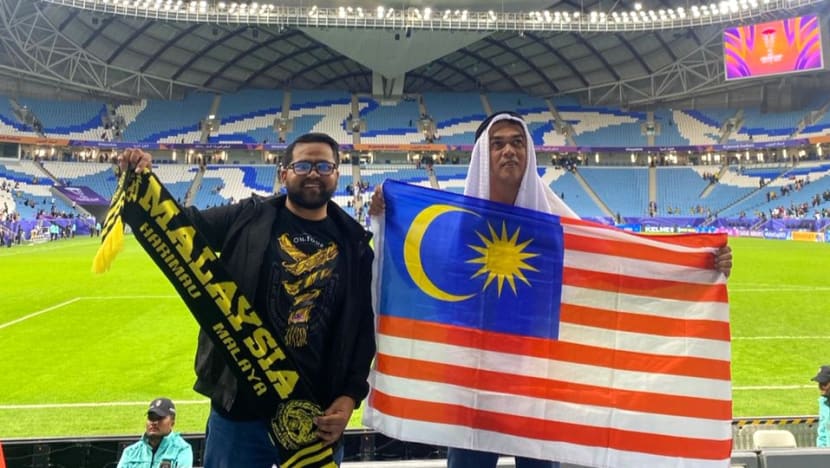
Since following the team intently from 2010, the teacher has tried his best to go for almost every game, home or away.
He has watched the Harimau Malaya, or Malaysian Tigers, being thrashed on multiple occasions and, once, had water bottles of urine thrown at him in Indonesia during an away game.
The last two years, however, have been the most rewarding of his 14 years as a diehard fan.
In June 2022, the 40-year-old father of five shed tears of joy when Malaysia beat Bangladesh 4-1 to qualify for the 2023 Asian Cup.
“It was one of my sweetest moments following the team. I consider myself to be the 12th man and will always try my best to be there during every game,” he told CNA.
He saved up following Malaysia’s qualification and followed his team to the tournament in Qatar in January to watch all three of its group games.
Malaysia lost 4-0 in the first match to eventual runners-up Jordan, and 1-0 to Bahrain in the second. In the third, it held Asian football giant South Korea – which had Europe-based players such as Son Heung-min, Kim Min-jae, Hwang Hee-chan and Lee Kang-in in the lineup – to a shock 3-3 draw.
For many Malaysians, this result harked back to the 1970s and 1980s when the country was considered a force in Asian football and on par with the likes of Japan and South Korea. Malaysia’s football team qualified for the Olympics in 1972 and 1980.
Mr Kamaruddin happened to be behind the goal when Malaysia scored the last-minute equaliser against South Korea.
“I … managed to record the video of the equaliser being scored. That has to be my best moment. It was a priceless and unforgettable moment that no one can take away from me,” he gushed.
Playing in the Asian Cup was a big occasion – the first time in 42 years that Malaysia had qualified for the tournament on merit.
The Tigers are still on track to qualify for the third round of the 2026 World Cup qualifiers, and for the 2027 edition of the Asian Cup in Saudi Arabia.
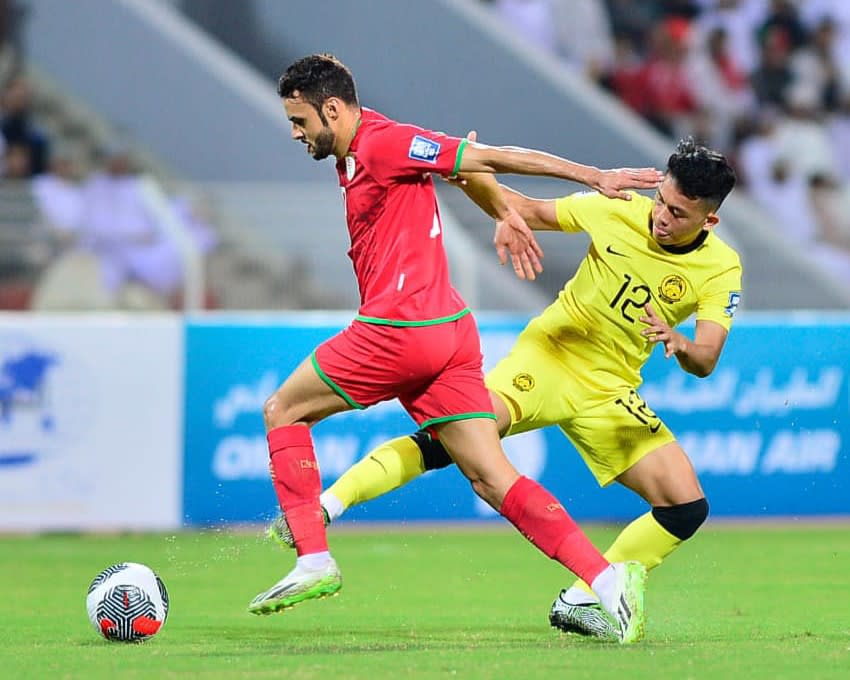
The Tigers were singled out by international football governing body FIFA as one of five teams that have stood out in the World Cup qualifying campaigns so far after beating Kyrgyzstan and Taiwan in November last year.
On Thursday (March 21), they suffered a setback when they lost 2-0 against a higher-ranked Oman in Muscat, but have a chance to avenge that defeat in the return match on March 26 at Kuala Lumpur’s Bukit Jalil Stadium.
The Tigers are currently third in the group, where they are tied on six points with Oman and Kyrgyzstan.
While Oman remain favourites to top the group, the Malaysians have “earned the right to dream”, FIFA said on its website in January. The World Cup qualifiers double up as qualifiers for the 2027 Asian Cup tournament.
The Malaysia team’s impressive run in the last two years contrasts sharply with Singapore’s, which it trounced 7-0 in May last year at the SEA Games in Cambodia. The defeat of the Under-22 men’s team was Singapore's biggest-ever loss to its arch-rival.
It was also Singapore’s fifth straight exit from the SEA Games at the group stage and elicited a promise by the Football Association of Singapore to ask “tough questions” openly.
Malaysia currently sits at 132nd spot on FIFA’s rankings – jumping 15 places in 2023 to end last year at 130th, before dropping two places this year – while Singapore is 156th.
Their contrasting forms recently prompted a forum letter to Singapore news outlet The Straits Times, suggesting lessons can be learnt from Malaysia.
“The Malaysia national football team is punching above its weight in terms of results,” noted the letter writer Cheng Zhongyi, who cited its appointment of South Korean coach Kim Pan-gon as a “big factor”.
Singapore, on the other hand, has seen three national coaches since December 2021. Current head coach Tsutomu Ogura took over last month after the Football Association of Singapore fired Takayuki Nishigaya on Jan 29, citing national team performances that have been “below expectation”.
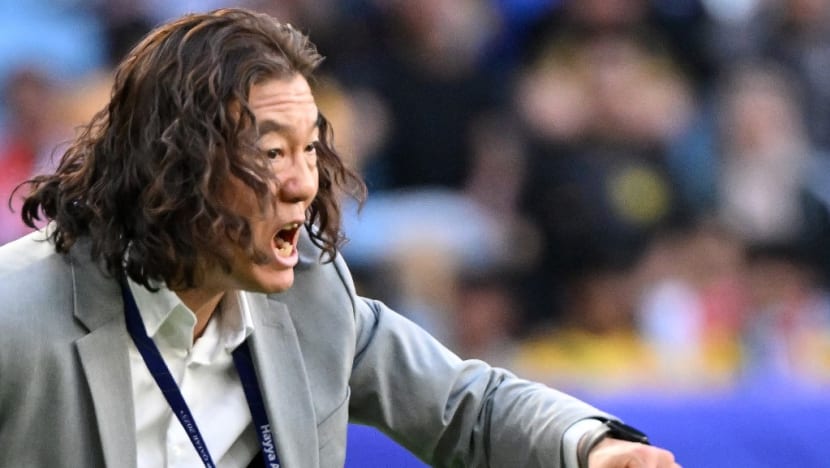
Nishigaya had taken over from Tatsuma Yoshida, who resigned a year before his contract was up.
In Ogura's first match as Lions coach on Thursday (March 21), Singapore came back from behind to draw 2-2 with China in the 2026 World Cup qualifiers, a result that got fans at the National Stadium pumped up and celebrating. Singapore will face China again on March 26 in Tianjin.
What has been Malaysia football’s secret sauce of late?
Pundits and football watchers say that while not all is pitch perfect, the national team’s performance has indeed seen a resurgence, notably under Kim.
He has transformed the way the national team prepares for friendly matches and tournaments, said Malaysian football pundit Rizal Hashim.
“Because of his demanding attitude, Pan-gon has managed to inspire his support system in order to work for the betterment of the team. Ultimately Pan-gon has succeeded in creating a high-performance culture within the national team,” Mr Rizal said.
When Kim took over in January 2022, Malaysia was ranked 154th in the world, 22 spots below its current 132nd place out of 210 countries.
A former vice-president of the Korean football association, his biggest achievement so far is leading Malaysia to only its fourth appearance in the Asian Cup Finals.
The last time Malaysia qualified on merit for the Asian Cup Finals was in 1980 in Kuwait. In 2007, it co-hosted the tournament with Thailand, Indonesia and Vietnam, but lost all three games in the group stages.
Coach Kim has instilled a different mindset in the national team and put professionalism first, said sports journalist T Avineshwaran of The Star newspaper.
"The intensity is higher in every session and players know they cannot 'cheat' the coach, because every training session is being recorded by a drone. Not only that, Pan-gon is affable off the pitch but, on it, the players have said that he is a different animal, one that demands everyone follow his tactics and technique to a tee," he said.

Kim has spoken about creating a Malaysian team DNA and said whoever is on the field has to be consistent.
Kim, whose contract has been extended to 2025, has also said building a strong team takes time.
“We need to be patient because rice cannot be made in one minute. We need time and to believe in the process,” he recently told the media.
Former Malaysian national coach K Rajagobal agrees there has been a revival of sorts in the past two years.
“The team is getting some good results and winning matches. The most important thing is we need to be consistent if we are going to play the best teams in Asia,” said Mr Rajagobal, who led the country to win its one and only ASEAN Football Federation (AFF) Cup in 2010.
“We have yet to see if they can carry on the momentum during the World Cup qualifiers,” he said. He believes the team should have qualified for the next round of the Asian Cup with the players it had.
But he observed the team is playing with more urgency and aggression, while pressing from the front.
It wasn’t so long ago that Malaysia football hit a low.
Five years after winning the 2010 AFF Cup, it went down 10-0 to the United Arab Emirates in September 2015, arguably one of the darkest moments in its history.
In 2018, it placed 178th on FIFA’s rankings, its lowest ever.
That year, the Football Association of Malaysia (FAM) introduced a controversial policy of giving foreign-born players citizenship. It also called up more mixed-heritage players to the national team. This marked a major turning point, observers noted.
Naturalised players are foreign born-footballers who have no connection to the country but get citizenship, while mixed-heritage players have a bloodline connection with the country, be it through a parent or a grandparent who was a citizen.
Players without any ancestral connections to the country must be residents for at least five years to be eligible to play for the national team.
Several players who were born in countries like Brazil, Argentina, Kosovo, England and Colombia have been naturalised and called up to the national team.
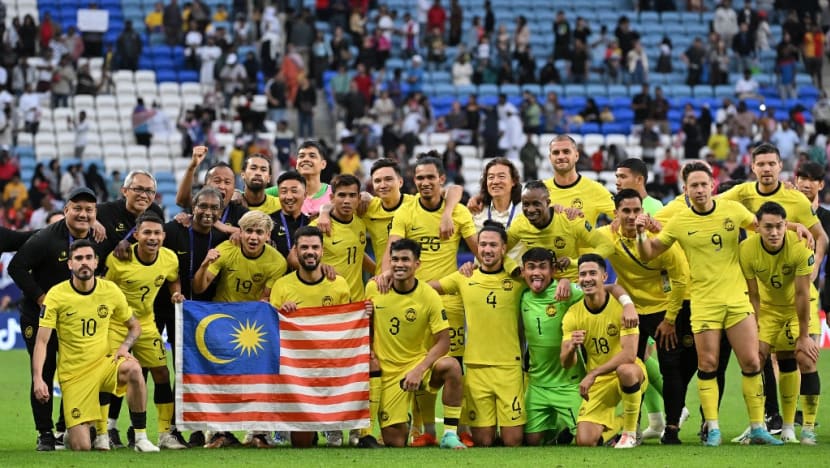
For the Asian Cup, Endrick dos Santos Parafita and Paulo Josué (Brazil), Mohamadou Sumareh (Gambia) and Romel Morales (Colombia) were the naturalised players called up.
Mr Morales, who made his debut for Malaysia in the tournament, scored the third goal against the South Koreans.
There were also 10 mixed-heritage players called up for the Asian Cup – Matthew Davies, Daniel Ting, Dominic Tan, Junior Eldstal, Dion Cools, La'Vere Corbin-Ong, Stuart Wilkin, Brendan Gan, Natxo Insa and Darren Lok.
Malaysia, along with Hong Kong, had the highest number of naturalised and mixed-heritage players at the tournament.
“The whole idea was to cultivate a winning culture by hiring naturalised players as a quick fix to our problems… It was mooted as a short-term measure,” said Mr Rizal.
“I think this has benefited the Malaysian team in terms of performance. But at the same time, we need to keep developing our local talent and give them the room to make the step up.”
The use of naturalised players has both positive and negative impacts, Mr Avineshwaran believes. While there is opportunity for local-born players to learn from their naturalised counterparts, there are concerns the latter will always be picked ahead of the local-born ones, he said.
“The mindset of some locals is if there are naturalised players, they must be used,” he said.
That said, some naturalised players are “tactically very smart” and “carry themselves well on and off the pitch”, said Mr Avineshwaran.
“Their professionalism is at a high level. They are leaders in the team and push the team to go all out,” he said, adding the situation is similar with Indonesia, who have seen an improvement with the inclusion of many mixed-heritage players.
An over-reliance on naturalised players, however, cannot be a long-term solution, he said. “Local talents need to be prioritised. We do not want to erode the brand of Malaysia, which is its people, its multiracialism."
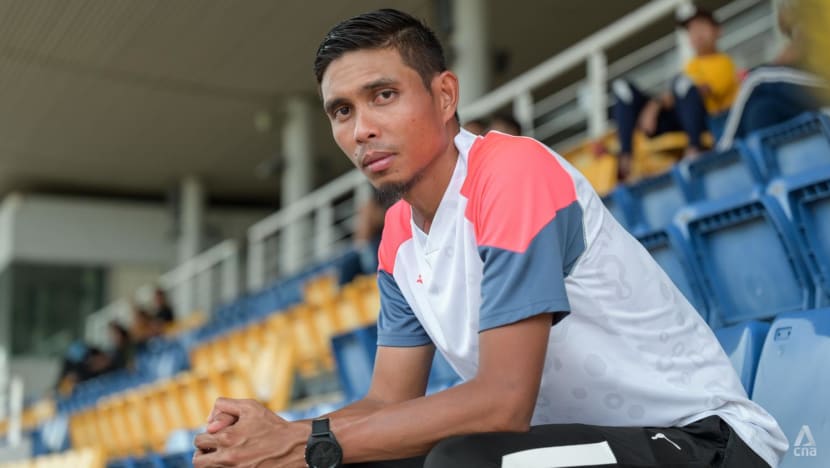
Mr Kamaruddin agrees naturalised players should not dominate a squad at the expense of the development of local-born players.
“It can’t be a situation where all the players on the field are Mat Salleh (a colloquial term referring to white people). If this continues, the locals will say there is no future for them,” he said.
Malaysia suspended its naturalisation policy for the national team in 2021. But the option remains for clubs in the domestic league, and the programme continues to be criticised.
In January, former Tiger James Wong questioned if the current national team is “Malaysian enough” and whether the naturalised players would stay on in Malaysia after finishing their careers, news site Free Malaysia Today reported.
Mr Avineshwaran cited Qatar’s system of naturalising players but, at the same time, working at developing its own players through the Aspire Academy.
Qatar has produced players like Akram Afif, who graduated from the Academy in 2015. He scored a hat-trick in February’s Asian Cup final against Jordan and was named the most valuable player of the tournament.
Malaysia must continue to nurture youths who aspire to a football career, and resolve issues in its domestic league, observers said.
“You need continuity and that comes from the lower-aged teams,” said Mr Rajagobal.
Youth players should also be given international exposure. “This is why Japan has been consistent in qualifying for the World Cup and has players playing for some of the top teams in the world,” he said.
At the domestic level, non-payment of salaries by clubs and other issues crop up periodically, and questions have been raised on the competitiveness of the Malaysian Football League.
“How are we going to uncover new talents when teams face problems paying their players and other bureaucratic problems? This will only push away interest in taking up football as a career,” said sport analysts Pekan Ramli.
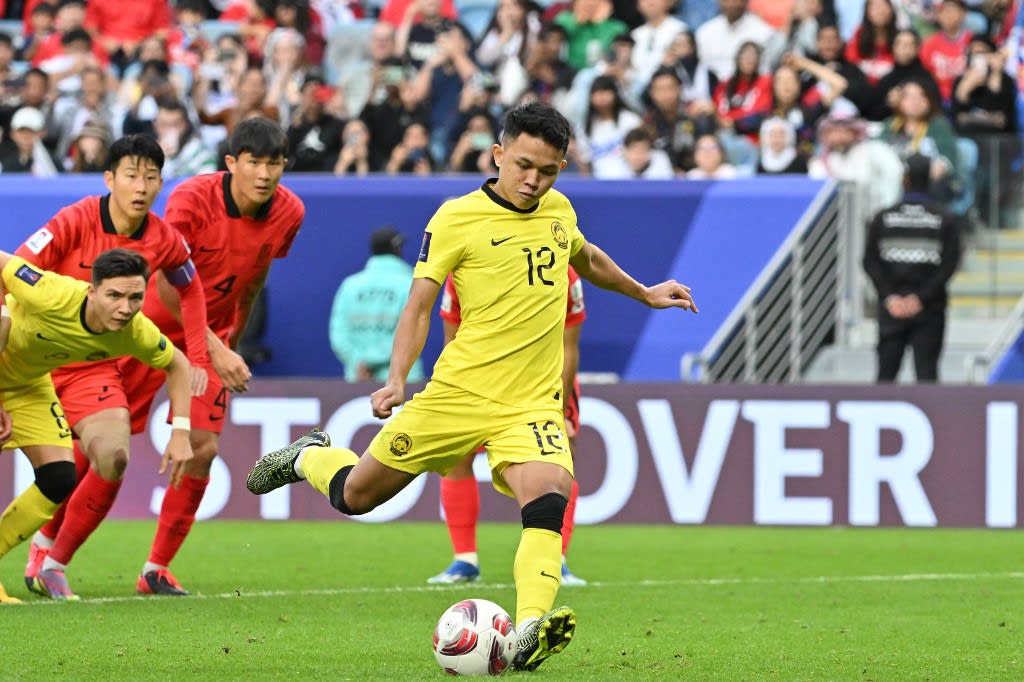
At the top tier of the 14-team Malaysia Super League, Johor Darul Ta'zim (JDT), a team bankrolled by Johor's crown prince Tunku Ismail Sultan Ibrahim, has won the title for the last 10 years consecutively.
Most of Malaysia’s current national players play for JDT and many even start on the bench for their club.
If the national team wants to thrive, a strong league is needed, Mr Avineshwaran believes.
“While JDT are strong and can compete in the Asian Champions League, what about the other teams? Many are trying to compete, but they don’t have the financial muscle to do so,” he said.
There have been many lopsided results in the league, with some teams losing regularly by big margins, he noted.
From May when the new domestic season begins, a new rule will allow six foreign players to be fielded at any one time while teams will be allowed to register nine foreigners. This could stifle opportunities for young local-born players, said former national player Razman Roslan.
“There is a need to look into this. It might be good for (the) team competing in the Asian Champions League, but not for our local players,” said Mr Razman, who was part of the winning AFF team in 2010.
Malaysian players should do more to step out of their comfort zone and try their luck overseas, observers told CNA.
Even if they do not play in Europe, they could feature in the Japanese, South Korean or Middle Eastern leagues, said Mr Rajagobal.
He cited the likes of Thai midfielder Chanathip Songkrasin, who played for seven seasons in the J-League with top teams Hokkaido Consadole Sapporo and Kawasaki Frontale, and striker Teerasil Dangda, who became the first Southeast Asian player to play in the Spanish La Liga in 2014.
“This will improve the national team as those exposed to the highest level will play with more confidence. It is important for players to have big dreams and to play at that level,” he said.
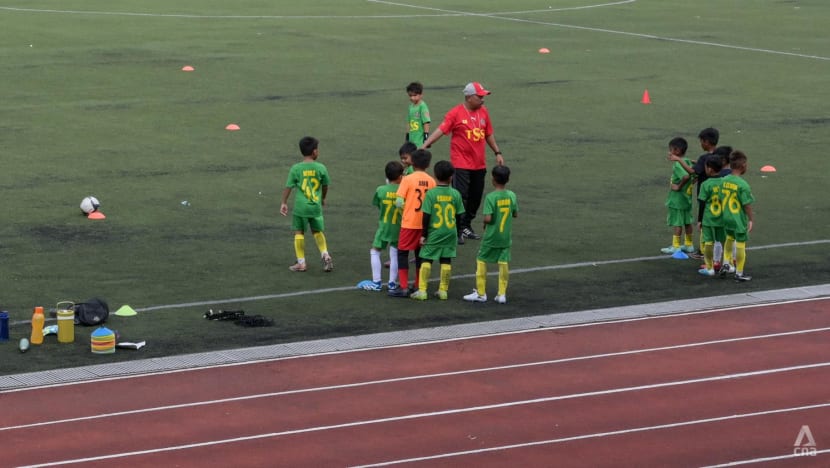
He would like to see Malaysian footballers like Arif Aiman Hanapi and Faisal Halim ply their trade abroad.
Arif was lauded as one of the most promising young players at the Asian Cup, while Faisal scored one of the goals against South Korea, adjudged to be the goal of the tournament by fans.
“It took intelligence to score that goal and when you show that you can play with the top guns, it boosts your confidence,” said Mr Rajagobal.
Mr Pekan hopes a Malaysian can play in the English Premier League (EPL) one day, pointing out that Japanese and South Korean footballers have made such a breakthrough for a while now. “When this happens, it will be a bridge … for other Malaysians,” he said.
Mr Razman said the next step for Malaysia is to maintain its momentum and catch up with Southeast Asian frontrunners like Thailand and Vietnam, which are 101st and 105th respectively on FIFA’s rankings.
Vietnam, ranked 158th back in 2013, shot up to the top 100 at the end of 2018 and remained there until its poor Asian Cup showing saw it drop to 105th. But its rise in recent years has been attributed to former coach Park Hang-seo, as well as youth development academies.
Thailand is also known for its strong youth development programmes. It has long been one of the top teams in Southeast Asia, and new Football Association of Thailand president Nualphan Lamsam – the country's first female football chief – is continuing its quest to reach the World Cup finals.
“There has been an improvement, but we don’t just want to see (the Malaysia team) qualify for the Asian Cup and be happy with a draw with Korea. We want to see them qualify for the tournaments consistently in the long term,” said Mr Razman.
The FAM launched a 12-year programme called F:30 in 2018 with a goal of becoming one of the top five teams in Asia. In Asia, it is currently ranked 23rd.
The country also launched the National Football Development Programme in 2014 that targets boys aged seven to 17, and aims to cultivate internationally competitive footballers.
Deputy youth and sports minister Adam Adli told Malaysia’s parliament this month that 16,228 players and 767 coaches have been involved in the initiative.
While Malaysia is still a distance from the holy grail – qualifying for the World Cup on merit – nothing is impossible if the players, administrators and aspirants play their part, said Mr Razman.
“If we start with children who are aged five or six, they could become professionals with a high standard in 20 years,” he said. “We might think it’s impossible or it’s a joke, but if all play their role, it can happen.”
In the meantime, diehard fan Mr Kamaruddin is optimistic Malaysia can qualify for the next stage of the World Cup qualifiers and the next edition of the Asian Cup.
“I am already preparing to go on more away days against quality opposition,” he declared.




































